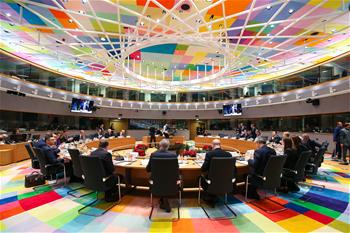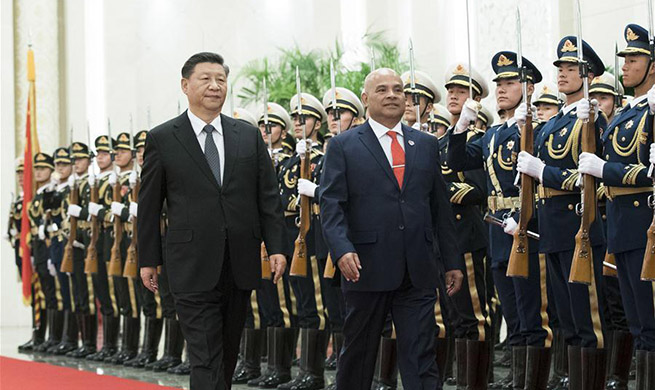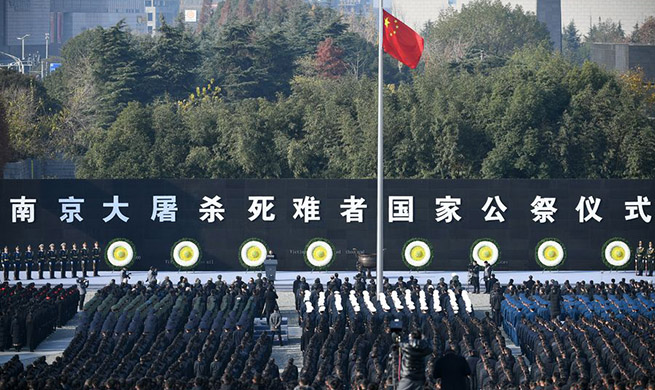ANKARA, Dec. 13 (Xinhua) -- Turkey's Central Bank has lowered the benchmark interest rate again in a bid to boost the economic growth.
The cut was made on Thursday in line with Turkish President Recep Tayyip Erdogan's ambition of reaching single-digit interest rates in 2020.
The Monetary Policy Committee of the Central Bank has proceeded to a rate cut of 200 basis points, bringing the benchmark rate from 14 to 12 percent, the bank said in a statement.
Recent data indicates that the recovery of economy continues, the bank said, noting that the inflation is expected to decline.
The Turkish leader replaced the previous Central Bank governor with Murat Uysal, who has brought down the rate by 12 percentage points since taking office.
The bank has cut rates for four times since July when the policy rate stood at 24 percent following a currency crisis which devaluated nearly a third of the Turkish lira last year.
On Tuesday, Erdogan signaled the fresh interest rate cut, indicating during a public speech that "Turkey's economy has entered a recovery period. We will see single-digit inflation and interest rates in 2020."
Experts have interpreted his remarks as the sign of new rate cuts in 2020 and the continuation of the easing cycle, with the economy beginning to gain momentum after a recession.
Experts said, however, that the cuts next year would be less substantial.
"It is plausible that the easing cycle will continue in 2020 but the cuts would not be as big as this year. We believe that the Central Bank will continue to cut rates, but in a smaller scale," economist Enver Erkan, with the Terra Investment in Istanbul, said in a note to investors.
Inflation surged in June 2018 after the crash of the lira. After peaking at 25.2 percent last year, it dropped to single digits before leveling at an annual 10.6 percent in November.
Turkey's economy grew by 0.9 percent year on year in the third quarter, breaking three consecutive quarters of contraction as a result of last year's currency crisis, according to official data published on Dec. 2.
The recession lasted shorter than most analysts expected, as the Ankara government used fiscal stimulus, tax cuts and state-banking lending to revive economic activity in the country, especially in big cities.
Meanwhile, foreign investments are far from revival, which can be a concern to the Erdogan government that used to rely on foreign direct investment (FDI) to achieve an annual growth of over 5 percent.
In his 2020 budget speech to the parliament, Finance and Treasury Minister Berat Albayrak said the country's economic program for 2020-2022, unveiled in September, targets a 5-percent annual growth for each of the next three years.
"It's time to unleash Turkey's economic potential with a particular focus on value-added production, technology and exports which have not fallen despite the contraction of global trade," he was quoted by semi-official Anadolu Agency as saying.

















